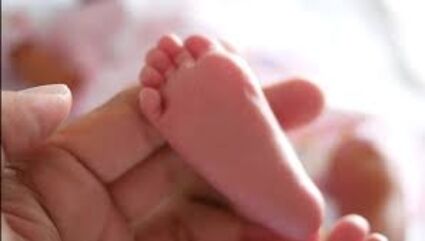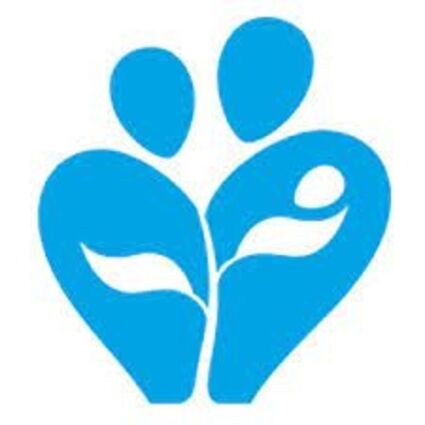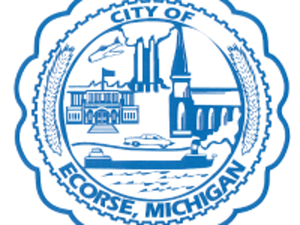Help to prevent child abuse and keep children ages 0-3 with their families
December 15, 2022

LANSING – The State of Michigan is expanding highly successful local programs to keep families with young children together and work to ensure that children under age 4 in the child welfare system grow up in permanent, nurturing homes that support their development.
The programs provide services to biological parents so that – whenever possible – they can be the permanent caregivers for children who had been in foster care.
The Michigan Department of Health and Human Services (MDHHS) received a five-year grant from the federal Health Resources and Services Administration to provide funding for three counties to support the coordination of Infant-Toddler Court Programs, often referred to as Baby Court, in Wayne County and two additional counties in Michigan that are still to be determined.
"MDHHS believes strongly in the importance of providing services that keep families and children together while expanding access to behavioral health supports," said MDHHS Director Elizabeth Hertel. "Infant-Toddler Court Programs help us address the needs of parents and their young children so that we can build strong families that can stay together."
The grant also will support the continued expansion and sustainability of Baby Courts into additional counties beyond the funding period.
"Wayne County has had a successful Baby Court docket for over a decade," said Kathleen Allen, referee in Wayne County Third Circuit Court. "The children and families in this county have benefitted greatly as a result. Principles of collaboration, communication between the team and the respect afforded the parents and caregivers of the children have resulted in overwhelming improvement in the child and family dynamic.
"Baby Court families do not return to care after successfully completing their treatment goals as they are given the tools to parent on independently or the knowledge needed to seek help before a problem manifests," Allen said. "Truly Baby Court and infant mental health services are the gold standard for child welfare, and we are proud to be a part of that and look forward to the expansion of this specialty court statewide."
The program is for young children, birth to age 3, and their families if the children are at risk of entering foster care due to abuse or neglect or are already in foster care and could be reunified safely if the family receives services. The Infant-Toddler Court Program involves collaboration among the courts and providers of foster care, Infant Mental Health Home Visiting Services and early childhood services. Partners include MDHHS's Children's Services Agency and Bureau of Children's Coordinated Health Policy, the State Court Administrative Office, local courts and Wayne State University.
"The best thing for children is to remain with their parents whenever possible – especially in their early years when their development is critical to their long-term health and well-being," said Demetrius Starling, executive director of the MDHHS Children's Services Agency. "If we work together to provide resources to families, we can keep them together safely and prevent the trauma that too many kids experience."
Baby Court proceedings are designed to be non-adversarial, with all members taking a strengths-based approach and recognizing the family's progress. In Baby Court, the parents, jurist, attorneys and providers meet monthly. All families served by Baby Court receive services that are designed to support the parent-young child attachment as well as the parent's and child's mental health. Research shows that Baby Courts help states meet standards set by the federal government for safety, permanency and well-being and eliminate racial disparities in timely receipt of services or rates of reunification.
Among other things, the grant pays for hiring coordinators statewide and for Wayne County, developing working groups to advance partnerships to support the health and well-being of infants and toddlers in the child welfare system and those who are at-risk for entry into the system, and an evaluation that informs quality improvement and determines the effect of Baby Courts.
Angela Klusek's son was placed into foster care as an infant in 2019. "Moms with addictions are looked at like evil people who don't love their kids and that isn't the case," said Klusek, of Detroit. "I thought (the system) would be out to get me and I'd never get my kids back. People in Baby Court listened to me. I got the resources I needed to stay clean and had systems in place after my case was closed. My case was closed in less than a year." Klusek enjoys art projects and shares that love with her children. She wants to help other mothers suffering from addiction who are in a similar situation.
Maltreated children are at particular risk for poor outcomes and need coordinated services across systems to support their physical and emotional well-being. Children age 3 and under are over-represented in Michigan's child welfare system, with 27% of victims of child abuse or neglect being ages 0-3 when only 14% of Michigan's population is made up of children in that age group.
"We are very fortunate to have Baby Court here in Midland County," said Midland County Probate and Juvenile Court Judge Dorene S. Allen. "The hands-on evaluation for the benefit of our infants and their parents is critical to reunification with the parents. We have found that immediately involving Baby Court has helped tremendously with stability for our babies. Infants and toddlers are our most vulnerable children. They are unable to speak for themselves and tell us what their traumas and needs are. Our Baby Court has been the voice of our most vulnerable children and we continue to be grateful for its support by this community."

Ann Stacks and Bryan Victor of Wayne State University will evaluate the effectiveness of the expanded initiative.





Reader Comments(0)